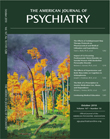Naltrexone Effects in Patients With Dementia
“Mr. S” was an 84-year-old man with long-standing bipolar I disorder and alcoholism. He had developed dementia as a result of Alzheimer's disease. His persistent alcoholism included consumption of up to one-fifth of whiskey daily, which led to bizarre and dangerous behaviors. He began naltrexone (50 mg daily), which resulted in reduced interest in alcohol within the first week. This improvement was sustained even after treatment was discontinued 6 months later.“Ms. A” was an 86-year-old woman with frontotemporal dementia who repeatedly drank scotch to intoxication, resulting in frequent falls. Bottles of liquor were stashed throughout her house, and she became acutely agitated if she was prevented from buying more. While receiving treatment with naltrexone (50 mg daily), the forcefulness of her alcohol-seeking behavior abated, and after 3 weeks she discontinued drinking altogether. Naltrexone was continued for a full year, with continued sobriety.“Mr. C” was a 68-year-old man with Wernicke-Korsakoff syndrome. He was able to live independently with a supportive landlord, but placement in a secure facility was considered after several hospitalizations resulted from his drinking to unconsciousness. While receiving treatment with naltrexone (50 mg), he discontinued frequenting local bars and was able to continue living in his familiar neighborhood.
Footnote
References
Information & Authors
Information
Published In
History
Authors
Funding Information
Metrics & Citations
Metrics
Citations
Export Citations
If you have the appropriate software installed, you can download article citation data to the citation manager of your choice. Simply select your manager software from the list below and click Download.
For more information or tips please see 'Downloading to a citation manager' in the Help menu.
View Options
View options
PDF/EPUB
View PDF/EPUBLogin options
Already a subscriber? Access your subscription through your login credentials or your institution for full access to this article.
Personal login Institutional Login Open Athens loginNot a subscriber?
PsychiatryOnline subscription options offer access to the DSM-5-TR® library, books, journals, CME, and patient resources. This all-in-one virtual library provides psychiatrists and mental health professionals with key resources for diagnosis, treatment, research, and professional development.
Need more help? PsychiatryOnline Customer Service may be reached by emailing PsychiatryOnline@psych.org or by calling 800-368-5777 (in the U.S.) or 703-907-7322 (outside the U.S.).

